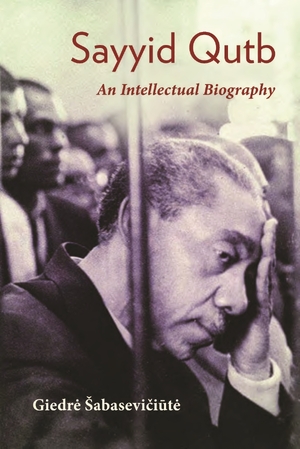"An excellent book which sheds new light on an extremely important figure."—Walter Armbrust, author of Martyrs and Tricksters: An Ethnography of the Egyptian Revolution
"The author’s knowledge of the literary scene of early to mid 20th century Cairo is second to none, and so is her ability to bring it to life with important analytical implications."—Lucie Ryzova, University of Birmingham
"The most complete intellectual biography to date. A massive contribution to Egyptian intellectual history."—Yoav Di-Capua, University of Texas at Austin
"Coming from the French tradition of the sociology of knowledge and combining it with critical intellectual history and a careful understanding of the anthropology of Islam, Šabaseviciute goes beyond these deconstructions to explain to us in detail the Egyptian literary world and the visions of its protagonists after 1945 and the new shifts within this world after 1952."—Bettina Gräf, Ludwig-Maximilians-Universität München
Description
No Arab historical figure is more demonized than the Egyptian literati-turned-Islamist Sayyid Qutb. A poet and literary critic in his youth, Qutb is known to have abandoned literature in the 1950s in favor of Islamism, becoming its most prominent ideologist to this day. In a sharp departure from this common narrative, Šabaseviciute offers a fresh perspective on Qutb’s life that examines his Islamist commitment as a continuation of his literary project. Contrary to the notion of Islam’s incompatibility with literature, the book argues that Islamism provided as Qutb with a novel way to pursue his metaphysical quest at a time when the rising anti-colonial movement brought the Romantic models of literature to their demise. Drawing upon unexplored material on Qutb’s life—book reviews, criticism, intellectual collaborations, memoirs, and personal interviews with his former acquaintances—Šabaseviciute traces the development of Qutb’s thought in line with his shifting networks of friendship and patronage. In a distinct sociological take on Arab intellectual and literary history, this book unveils the unexplored dimensions of Qutb’s involvement in Cairo’s burgeoning cultural scene.
About the Author
Giedre Šabaseviciute is research fellow at the Oriental Institute in the Czech Academy of Sciences, specializing in Egypt’s intellectual past and present.
Series: Modern Intellectual and Political History of the Middle East
6 x 9, 300 pages, 7 black and white illustrations
December 2021




